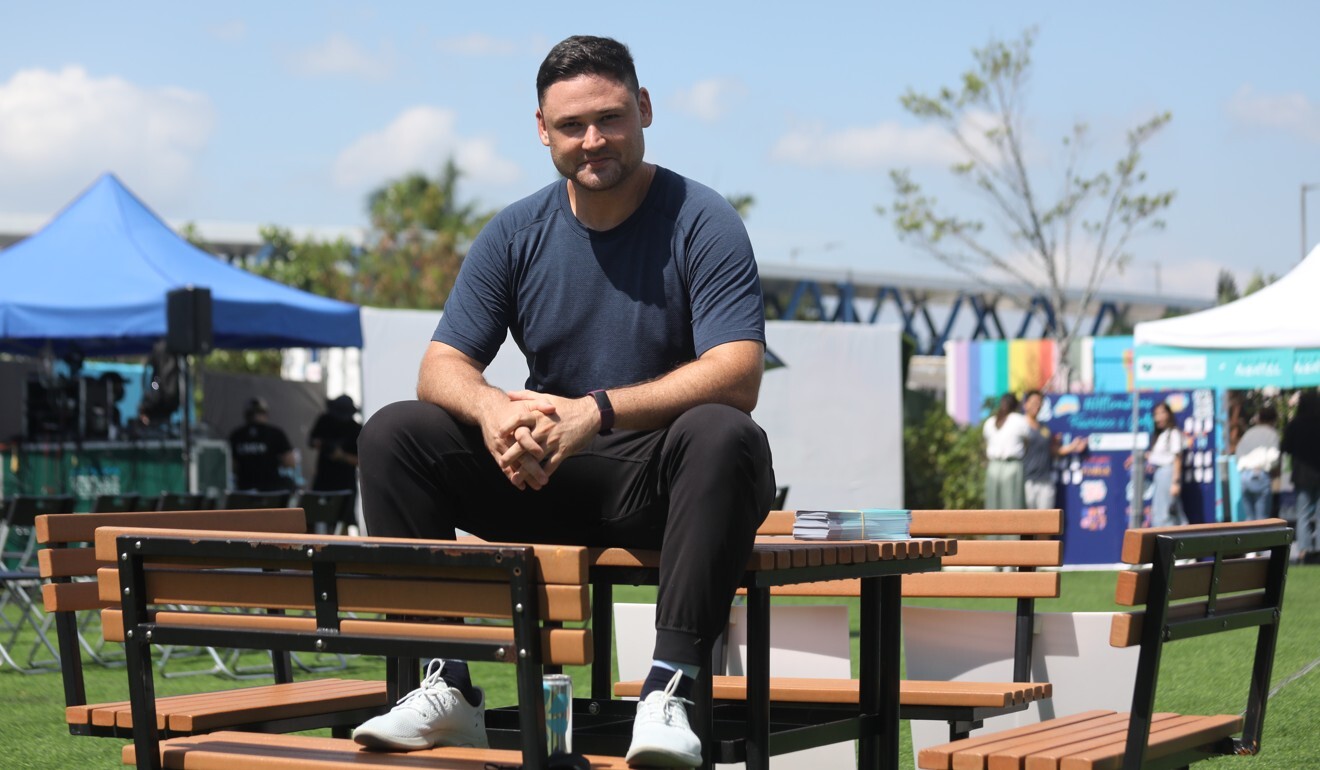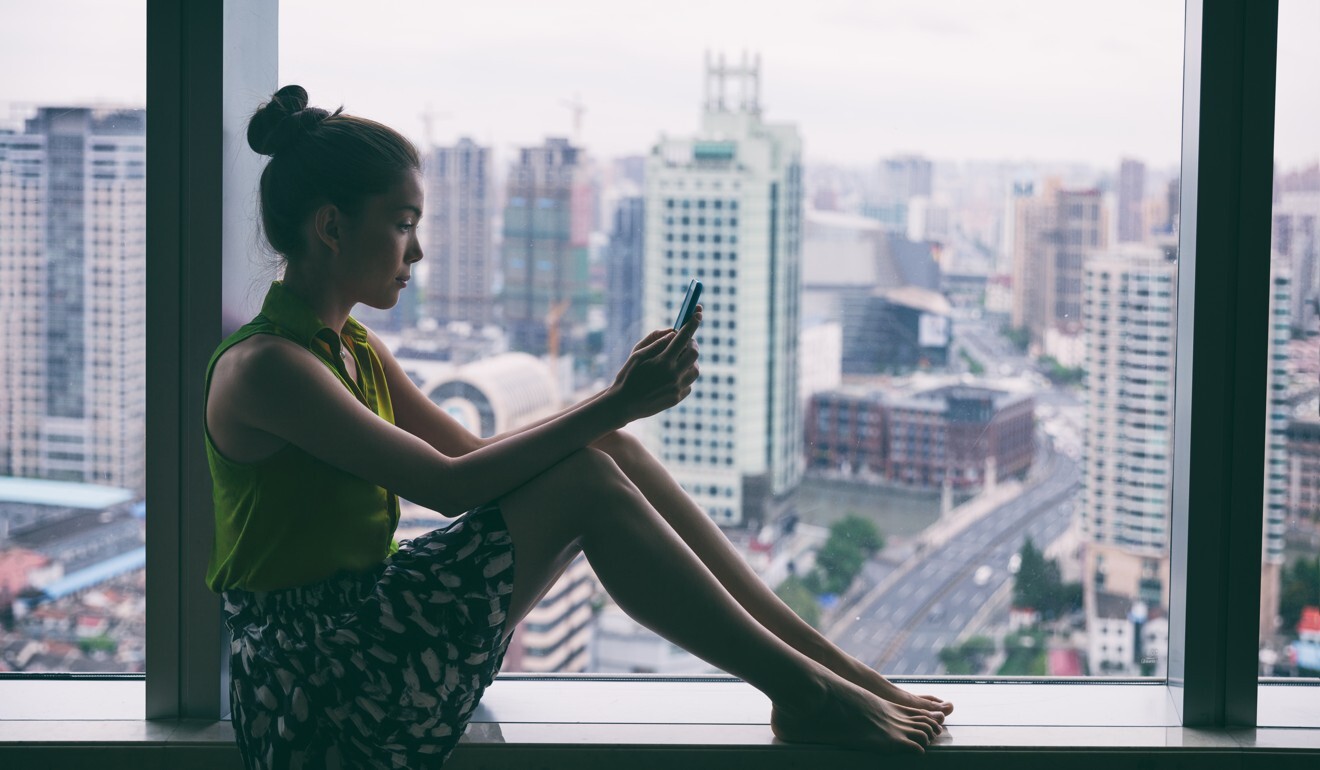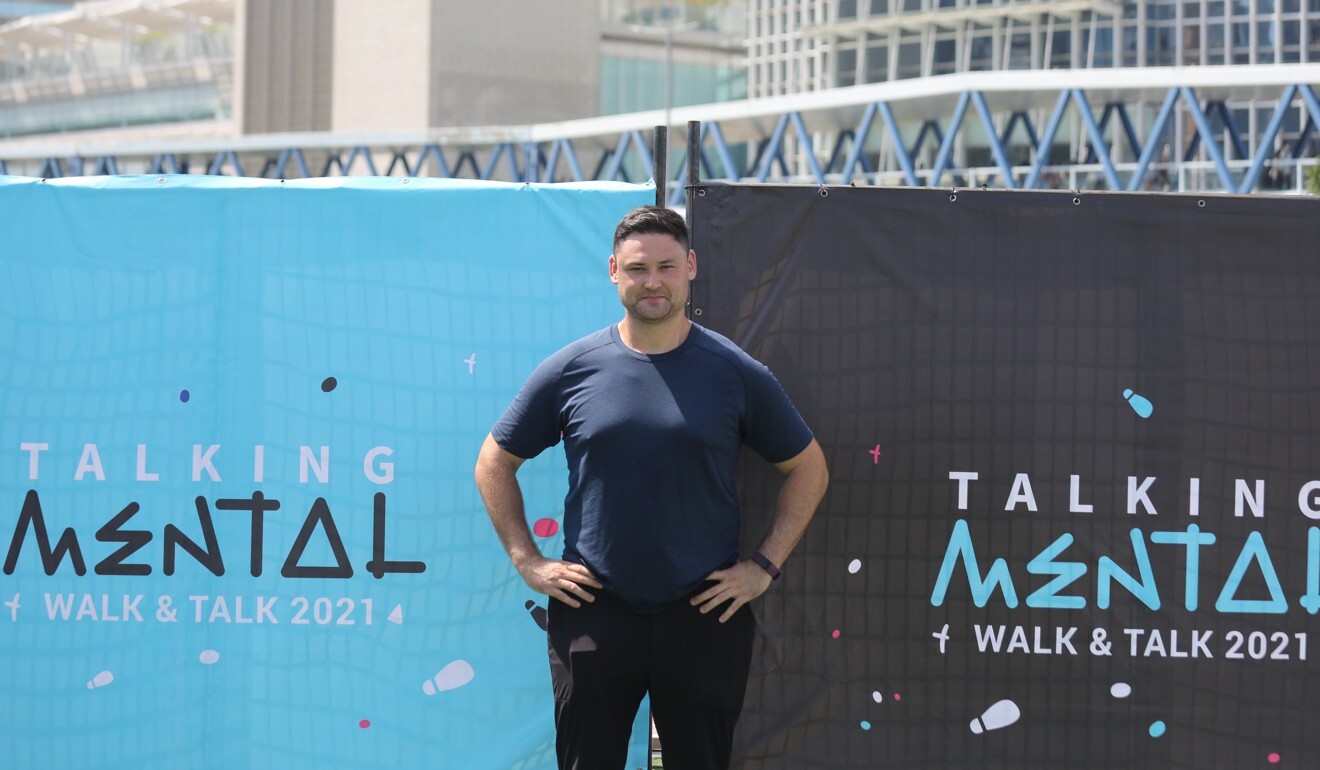
How Talking Mental’s ‘one-stop shop’ mental health hub helps Hongkongers break through issues of stigma and accessibility
- Founder Stadlin-Robbie launches ‘Walk and Talk’ and ‘Talking Mental Hub’ to close gaps in resources and quality care
- ‘Anyone on this planet with a brain has mental health issues, it’s just where you are on the spectrum’
The key is never to let the metaphorical engine sit idle, says Talking Mental founder Aaron Stadlin-Robbie, who after completing a round-the-city walk launched the inaugural Talking Mental Hub at the Central Harbourfront last weekend.
In a seven-leg, eight-day walk through Central, Stanley, Sai Kung, Tai Po, Yuen Long, Tuen Mun and Tsuen Wan, Stadlin-Robbie, curious wanderers and mental health experts completed their second Walk and Talk event – last year’s inaugural being a virtual format. The finish line was the Hub near the AIA Vitality Park Observation Wheel.

“Having been in the mental health realm quite intensely for the last few years, there is a massive gap in accessibility, quality care, and stigma. Accessibility comes from affordability and not knowing where to start. Quality care – there’s a massive disparity between the private and public sector, and if you can’t afford private, you have to wait in the public sector for, in some cases, two years to find appropriate help. So there’s a real issue with who you’re speaking to and how long you can speak for.”
Take your pick for statistics: an estimated one in seven people in Hong Kong experience common mental disorders, though nearly 75 per cent do not seek professional help; 61 per cent of Hong Kong adults suffer from poor mental well-being, with anxiety and depression the most common conditions, according to MindHK in 2019.

Globally, the WHO in its five-year Special Initiative for Mental Health points out that depression is “one of the leading causes of disability”, while “people with severe mental health conditions die prematurely … due to preventable physical conditions.”
Amid a Covid-19 era, the UN’s 2020 Policy Brief concluded that 264 million people are affected by depression, with less than one mental health professional for every 10,000 people in the world. Given that mental health is “one of the most neglected areas of health”, the vows of various governments’ financial support are welcome – but there is much to be done.
“[The Walk and Talk] is also just to release stress and air some feelings out during Covid-19,” Stadlin-Robbie said. “It stemmed a lot from what I was doing when stressed during the pandemic. I turned to walking with a mate, whether it was an hour, two, whatever. It’s amazing how you feel during and after it with no expectation. Sometimes we didn’t talk specifically about mental health. It’s just being open, and having a platform where you’re comfortable to talk. To release that pressure valve a bit – you don’t really get that opportunity much in society now.”
Despite the dozens of enthusiastic local NGOs, mental health awareness in Hong Kong is in its relative infancy. As such, Stadlin-Robbie felt the need to help citizens get their feet in the door. They are by no means claiming to be able to diagnose, but will point those interested in the right direction.
“I always wanted to create a one-stop shop for mental health. What we’ve seen too often is that people don’t know where to start. The resources that exist are too scattered – people aren’t sure what is out there, why, what the resources do, why it’s important, and at what point in your battle with mental health should you be going,” he said.
“Places exist, but unfortunately when you walk in there, you almost don’t want to be there. It made me feel worse and there’s a stigma attached to it. People walk away with a better educational decision on where to go. This is not just for yourself – if someone comes to you with a problem, then you’re better equipped to help them as well.

“That has come from a lot of people who call me for resources, they say ‘my friend or colleague is suffering from depression, has suicidal thoughts, what do I do?’ The fact that they call me over their own workplace [shows] there is an element of not knowing who to trust or where to begin.”
Talking Mental’s initiative even caught the attention of UFC star Michelle Waterson, who herself is a big advocate for mental health and promoting positive mindsets. In an Instagram Live to her some 1.7 million followers, she and Stadlin-Robbie explored the pressures and obstacles faced by elite-level MMA fighters.
“I told her about our mission and she is really into being active. Getting the engine started. It’s not necessarily about going for a run, but getting up and out and walking to get the engine going. She resonated with that because it’s the same thing when she goes through her fighting fears. Get up and the rest sort of follows,” said Stadlin-Robbie, who spoke to eight-time Olympic medallist speed skater Apolo Ohno the previous year.
“Too often in society is it looked as a problem or weird, but no, it’s all inclusive. Anyone on this planet with a brain has mental health issues, it’s just where you are on the spectrum. Mental health illness doesn’t just mean you’re suffering from depression. You might find some red lights like you haven’t been sleeping well, or you’re suffering from work stress or family life, Covid-19 and stuff you can’t control. We’re trying to provide education on when red flags are coming.”

